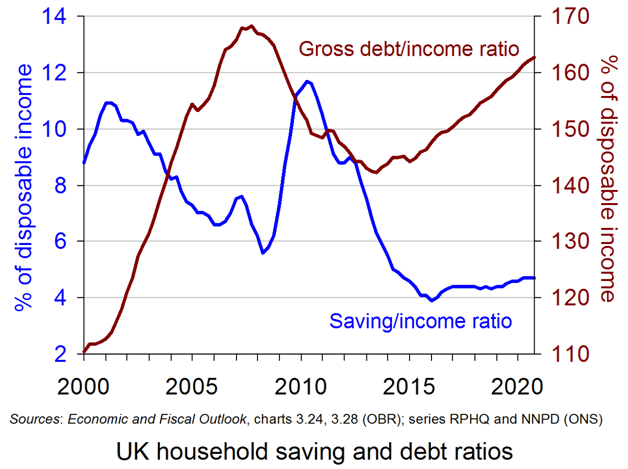How Do Mortgage Lenders calculate debt to Income Ratios

Debt To Income Ratio: Determining Your Right To Secure A Mortgage
Most people have some borrowing. When applying for a mortgage, you need to understand debt to income ratios to determine whether it's likely to impact your ability to secure a mortgage.
Every lender will need to know if you have other pre-existing debts, and how much for, so it's always wise to look into this before making an application to ensure you don't risk a rejection that can harm your credit rating.
In this guide, we'll explain what debt to income means and why it matters.
Have you determined your debt-to-income ratio?
If you still need to, you can request a callback at a time that works for you or click the button below to get a competitive, secure mortgage offer.
What is a Debt to Income Ratio, and Why Does it Matter?
A debt to income ratio looks at how much you need to pay each month towards debts, compared to what you earn. The earnings figure is gross, so before taxes and any other deductions.
In essence, this ratio shows a lender how much debt you are in, compared to what you earn to assess how risky your application is.
To calculate your debt to income ratio:
- Add up your monthly recurring debt repayments.
- Add up your monthly gross income and wages, including benefits.
- Divide the debts by the income, and then multiply by 100 to get a percentage.
As an illustration, if you pay debts of £1,000 a month and earn £2,500, then your debt to income ratio is 40%.
What Debts are Included in a Mortgage Debt to Income Ratio Calculation?
The sort of relevant debts can include lots of different things:
- Loans and credit cards.
- Student loan repayments.
- Child support payments.
- Mortgage repayments or rent.
- Car financing.
- Debt Management Plan repayments.
Having debt doesn't necessarily mean you won't be approved for a mortgage - and you can even look at remortgaging as a way to consolidate other debts and streamline your outgoings.
The impact will depend on what sort of debt you have, how substantial the repayments are, and what your net disposable income looks like.

What Debt to Income Ratio is Acceptable for a Mortgage Provider?
The lower the ratio, the less debt you have, and therefore the less risky your application. A ratio of around 20% to 30% is generally considered low risk and will be offered better interest rates.
There aren't always specific maximum debt to income ratios, although some lenders won't accept applicants at over 45%.
If you have a high debt to income ratio of over 50%, it's usually advisable to clear some of that debt before applying for a mortgage, as it will mean that the rates you are quoted will be less competitive.
As a rough idea, the below table shows a few examples of debt to income ratios, and what that might mean for your mortgage application:
|
Debt to Income Ratio |
Impact on Mortgage Eligibility |
|
10% or less |
No effect - low debt levels mean a low-risk mortgage applicant. |
|
10% - 20% |
Most lenders will regard your application favourably. |
|
20% - 30% |
Still a good chance of acceptance, most lenders will be happy to consider your application. |
|
30% - 40% |
Some lenders might not accept a 40% debt to income ratio - although most lenders will still consider it. |
|
40% - 50% |
More lenders are likely to be cautious and will require a more rigorous affordability assessment. |
|
50% - 60% |
Less likely to be accepted and the lender will require closer checks. |
|
60% - 70% |
Fewer lenders will accept this application and will need to scrutinise affordability to make an offer. |
|
70% - 80% |
Ratios approaching 80% or higher may require a specialist lender and are less likely to be approved. |
|
80% - 90% |
Most mortgage lenders will not accept an applicant with this high level of debt. |
|
90% - 100% |
The only options in this scenario would be a mortgage reliant on other factors outside of debt-to-income ratios, depending on other affordability calculations. |
How Important is my Debt to Income Ratio in Getting a Mortgage?
Most UK lenders will rely on debt to income calculations to work out whether you can afford a mortgage - however, not all lenders will have the same policies in place, or treat the same ratio the same way.
In most cases, your monthly mortgage costs need to be within a certain percentage of your income, and most lenders will cap their debt to income ratio and not lend to anybody above that level.
Is Debt to Income the Same as my Credit Rating?
No, these are two different things. You might have a high debt to income ratio but a good credit score, a low credit score, and a low debt to income ratio.
Credit referencing bureaus don't know how much you earn and therefore look at your credit performance and payments history, recording any issues.
Debt to income ratios don't look at whether you have kept all of your repayments up within the due dates, but rather consider how financially sound you are.
Can I Still Get a UK Mortgage if I Have a High Debt to Income Figure?
Potentially, yes. Lenders all have different policies, and while many limit lending only to applicants with below a 50% ratio, others have much more flexibility.
In some cases, a specialist lender might be comfortable with a higher debt amount, depending on other circumstances that mitigate the risk.
Lots of lenders use their underwriters to decide on whether a loan is viable, looking at various factors such as:
- Whether there are any other high-risk factors to applicants with a debt to income ratio over 50%.
- If you are consolidating debts into the mortgage application, and if so, whether the lender has a maximum amount permissible.
- Whether the lender can consolidate a higher proportion of your other debts, depending on whether those debts are also related to property developments or renovations.
- Usually, the debt consolidation cannot make up more than 20% of the total borrowing applied for.
- Relying on other affordability calculation measures, such as using an income multiplier calculation to arrive at a maximum loan value.
Do you have a high debt-to-income figure? Our team of experts can find the best offer for you.
Request a callbackCan I Get a Remortgage with a High Debt to Income Ratio?
Again, yes, you can - and the rules and policies depend on the lender.
If you have taken out substantially more debt since taking out your original mortgage, then the same lender might be reluctant to approve a remortgage application.
However, you might find that other lenders are happy to consider a remortgage application, provided you meet their lending criteria.
Should you have already remortgaged before to consolidate debts and are looking to do so again, a lender will likely apply more rigorous affordability checks than they would to an applicant with a lower debt to income ratio.
Get instant details on your borrowing options by using our calculator. Visit the link below.
CALCULATE HOW MUCH YOU CAN BORROWIs There a Maximum Debt to Income Ratio for a Secured Home Loan?
A secured loan isn't quite the same as a mortgage product, although both borrowing forms are secured against your home. A secured loan acts like a second mortgage.
Lenders can be more flexible with the terms, and therefore generally accept a higher debt to income ratio than they would be able to against a mortgage application.
In some cases, a secured loan is a viable alternative to a mortgage if you have higher levels of debt.
How Do Debt to Income Ratios Affect a Personal Loan Application?
All lenders will consider debt to income ratios, and having a higher level of other obligations will always make an application riskier.
However, personal loans won't rely as heavily on this metric to determine whether you are likely to be approved - although again, this depends on the lender's policies.
Why are Mortgage Applications Rejected with a Low Debt to Income Ratio?
As we have discovered, a lot depends on the attitude of the lender. Even if you have a low debt to income score, a lender might require you to meet other eligibility requirements.
Some common reasons for a mortgage application to be turned down include:
- Even if the ratio isn't substantially high, it may still exceed the maximum debt to income ratio of a particular lender - even if you will repay some of those debts before the mortgage application completes.
- You might be turned down if you have loans that have a period left to run over a maximum number of months.
- Suppose an applicant needs to repair their credit rating. In that case, a mortgage lender might turn them down - although they will usually consider the application if the debt to income ratio is low.
- Having debts, including a student loan.
In any of these scenarios, the important thing is to apply to a lender who will be able to consider your application, and being turned down by one provider does not mean that another cannot help!
How Can I Bring Down my Debt to Income Ratio to Improve my Chances of Being Approved for a Mortgage?
There are several things you can do:
- Do not take out any more debt in the interim.
- Pay off as much as you can, prioritising higher interest debts such as store cards and credit cards.
- Close any accounts that you are not using.
- Delay any purchases on credit that are not essential.
- Look at ways to increase your income - such as working overtime, taking on freelance work, or a second job on Jooble.
This is a small number of options available, and there are lots of strategies to improve a credit score and lower your debt to income ratio - get in touch for more assistance.
Expert Advice for Mortgage Applications and Debt to Income Ratios
If you have more questions about the impact of existing debts on your mortgage application, get in touch with the business loan broker team.
As an independent, whole-of-market broker, we can advise on the best ways to structure your application, and which lenders to apply to, where we know you have the best chances of approval.
Need help securing the borrowing you need at the most competitive rates available?
Related Posts
Ask the Expert
Mortgage Brokers




